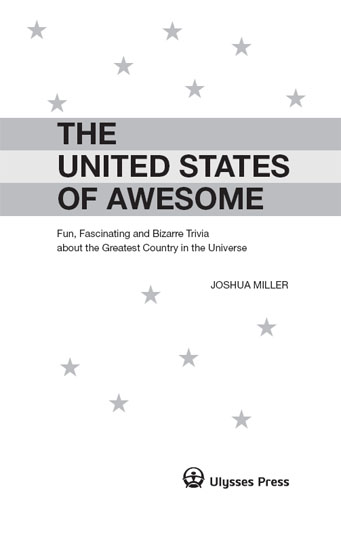
Copyright text 2012 by Joshua Miller. Copyright concept and design 2012 Ulysses Press and its licensors. All Rights Reserved. Any unauthorized duplication in whole or in part or dissemination of this edition by any means (including but not limited to photocopying, electronic bulletin boards, and the Internet) will be prosecuted to the fullest extent of the law.
Published by:
Ulysses Press
P.O. Box 3440
Berkeley, CA 94703
www.ulyssespress.com
ISBN: 978-1-6124-3148-2
Library of Congress Catalog Number 2012940433
10 9 8 7 6 5 4 3 2 1
Acquisitions editor: Keith Riegert
Managing editor: Claire Chun
Editor: Jessica Benner
Proofreader: Elyce Berrigan-Dunlop
Interior illustrations: Valentin Ramon
Interior clip art: flag strip of stars Christophe BOISSON/ shutterstock.com
Cover design: what!design @ whatweb.com
Cover artwork: space capsule James Steidl/shutterstock.com; Liberty Bell James Steidl/shutterstock.com; hot dog Paul Johnson/istockphoto.com; mitt and ball eurobanks/shutterstock.com; Vegas sign trekandshoot/shutterstock.com; bear Dennis Donohue/shutterstock.com
CONTENTS

The United States themselves are essentially the greatest poem.
Walt Whitman
You cannot spill a drop of American blood without spilling the blood of the whole world...We are not a nation, so much as a world.
Herman Melville
Whats the difference between the United States and a cup of yogurt? If you leave a cup of yogurt to sit for 200 years, it will develop a culture.
a drunk Englishman this author encountered in a London pub
Awesome is a word that has lost most of its original meaning in recent years through casual overuse. Once a weighty bit of vocabulary used to describe towering cathedrals and erupting volcanoes, the word is now uttered by most of us on a daily basis. Does the awesome sandwich you just made actually inspire such admiration that it is intimidating, or leave you with a sense of apprehension, even fear? Probably not. That would be one serious sandwich. The title of this book is meant to convey both the classic and current meanings of awesome. US history can be great, fun, funny, inspiring, horrifying, and completely ridiculous, if not all those things at once. And there is a daunting amount of it. The United States of Awesome shall attempt to present the United Statess truly awesome history in the casual and digestible manner of an awesome sandwich.
But before we dive into the roughly five hundred years of shenanigans that make up the American narrative, we might as well be thorough and jump all the way back to the beginning for some context
A craton is what those who know what theyre talking about call the stable blocks of the Earths crust that form the nucleus of a continent. A little over a billion years ago, a plucky new craton named Laurentia was born, becoming the ancient geologic core of what is currently North America. Citizens of the United States are among the latest of the great many tenants that have squatted atop Laurentia as it floats around our planets ever-shifting surface, periodically bonking into other cratons, getting into relationships, and having messy break-ups. Briefly, Laurentia and the other cratons decided to form something akin to a band, all squashing together into the supercontinent Pangaea. As happens with a lot of bands, eventually the continents decided to part ways. North America got to keep the Appalachian Mountains, which formed when Laurentia crashed into Eurasia and are now among Earths oldest mountain ranges. So it wasnt a total waste of time.
The newly single Laurentia now headed out West with its share of the dinosaurs, discarding Greenland along the way and eventually making a leisurely connection with South America. Laurentia also made an even more leisurely connection with the northeastern portion of Eurasia. During the Pleistocene glaciation, or Ice Age, ocean levels dipped far enough to expose that connection and create the Bering Land Bridge between modern Russia and Alaska. Turned out that since Laurentia had last spoken with the other continents, an aggressive and ambitious new species had spread like wildfire across the remnants of old PangaeaHomo sapiens. Some of these sneaky humans quickly scuttled into North America before the ebb and flow of Mother Nature sent the Bering Land Bridge back beneath the waves. As things went back to business as usual for Eurasia, North Americas new residents busied themselves propagating across the choice new real estate and killing off all the cool giant sloths and mastodons, and Eurasia forgot all about the place.
North America forgot all about Eurasia too. Which made things a little awkward when the Eurasians known as the Vikings showed up on the shores of present-day Newfoundland about on thousand years ago. The Vikings were not known for their friendliness, so, even though the relatively beardless North Americans were presumably quite impressed with the size and thickness of the Vikingss beards, it didnt take long for the North Americans to escort their unwanted houseguests to the door. Luckily for the North Americans, no one liked the Vikings much back in Eurasia either, so tales of this New World didnt get far. And everyone forgot once more.
For a handful of centuries, the North Americans got to keep Laurentia all to themselves, until the king and queen of a western Eurasian country paid a guy to find a faster way to get to eastern Eurasia. This guy thought he could accomplish this task by sailing westerly around the planet, but he didnt realize there was a whole other craton with a bunch of stuff on top of it blocking his path. Unfortunately for the North Americans, this guy immediately sailed back to Eurasia and blabbed to everyone about what he found.
Okay, that brings us up to speed.

PRODIGAL SON
William Franklin was the illegitimate son of Benjamin Franklin. Though his mothers identity is unknown, Benjamin and his common-law wife, Deborah Read, raised William as a natural son. And William at first seemed to be following in his fathers impressive footsteps. In his early twenties, William assisted Benjamin in his famous kite experiment. He fought in King Georges War, obtaining the rank of captain. In 1763 he became the governor of New Jersey and signed the charter for Queens College (now Rutgers University). But when the American Revolution reared its head, William enraged his father by becoming a Loyalist to the British Crown. In 1776, the Provincial Congress of New Jersey arrested William and he spent two years in incarceration. Then, in 1782, he departed for Britain, never to return.
After the war, William tried to make peace with his father, but Benjamin could never forgive William for his choices. Benjamin held the grudge to the bitter end, evening referencing it in his willhe left William very little, spitefully adding for emphasis: The part he acted against me in the late war, which is of public notoriety, will account for my leaving him no more of an estate he endeavoured to deprive me of.

FLYING DISC BY ANY OTHER NAME
In 1871, William Frisbie founded a pie company in Bridgeport, Connecticut. It is uncertain just how delicious Frisbies pies were, but at least one part of his product became quite popular with local college students: the pie tin. Frisbies pie tins formed the basis for a game in which the tins were thrown, sailing through the air, from person to person. In the 1940s, California inventor Walter Frederick Morrison came up with a similar game, using a popcorn lid to play catch with his girlfriend. Morrison took the game a step further, modeling a plastic creation he initially called a Whirlo-Way
Next page
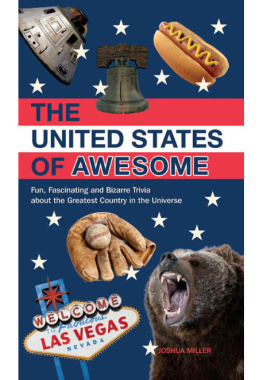
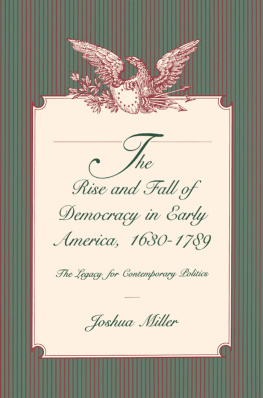
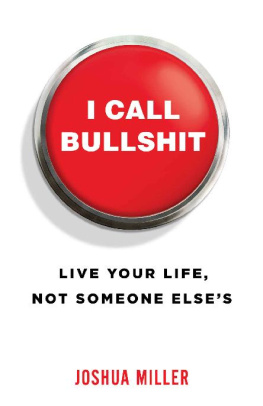
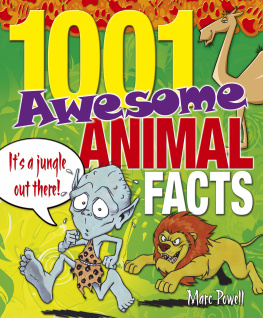
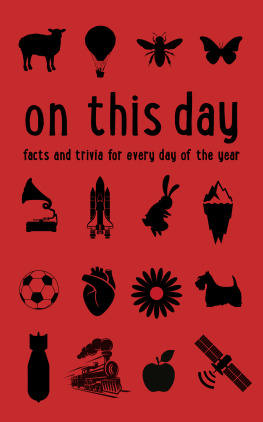

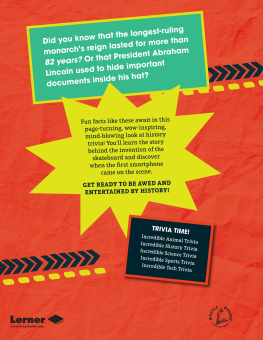
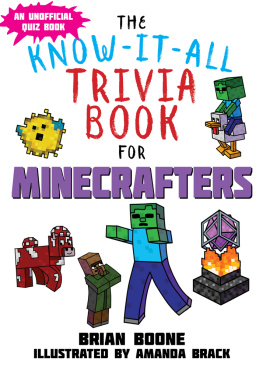
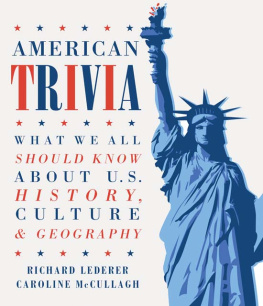
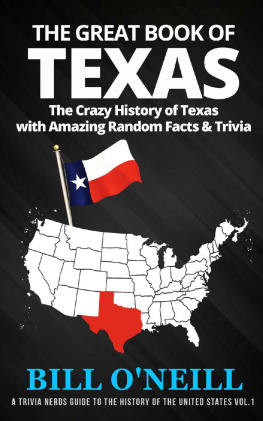
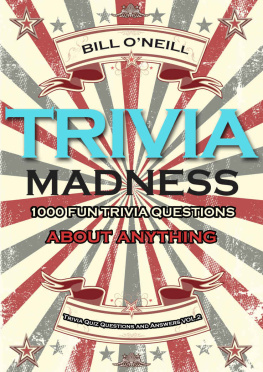
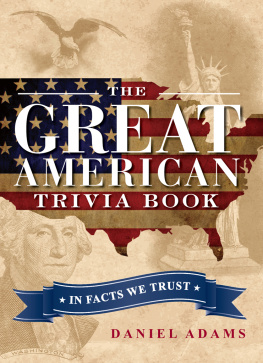


 PRODIGAL SON
PRODIGAL SON FLYING DISC BY ANY OTHER NAME
FLYING DISC BY ANY OTHER NAME